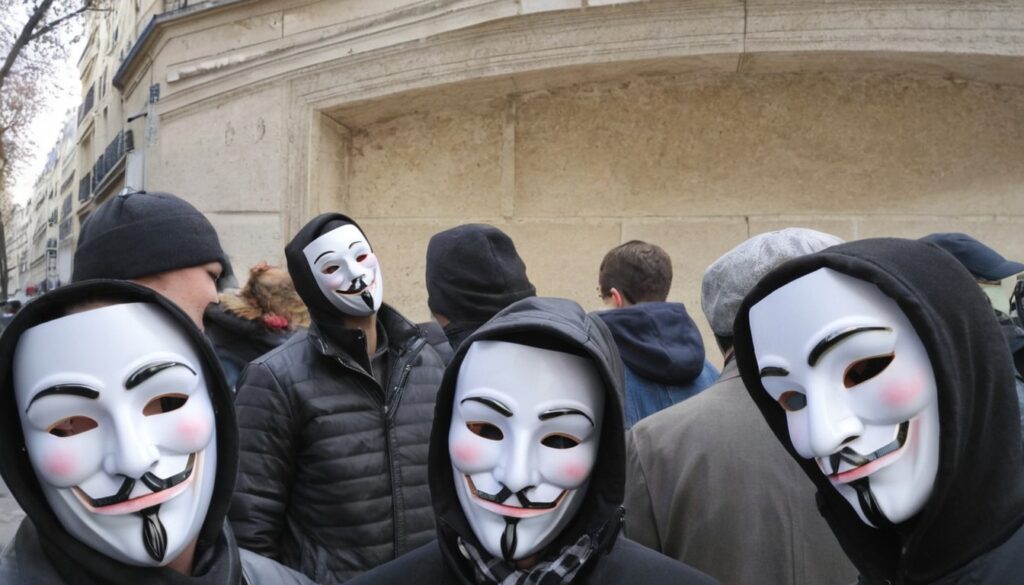The question of who leads Anonymous, the global hacktivist collective known for its significant cyber operations, protests, and digital campaigns against various governments, institutions, and corporations, does not have a straightforward answer. This is because Anonymous is fundamentally different from traditional organizations; it lacks a hierarchical structure, formal membership, or even a clear-cut ideology. Instead, Anonymous represents a loosely associated international network of activists and hacktivists united by common goals, tactics, and, often, a shared aesthetic. This article delves into the nature of Anonymous, the concept of leadership within the collective, and its impact on global events and cyber activism.

Origins and Ideology
Anonymous originated in 2003 on the imageboard 4chan, evolving from a culture of internet memes to a potent force in global activism. Initially, their operations were mostly pranks; however, over time, they took on more serious causes like freedom of speech, privacy, and transparency. Their operations have targeted organizations ranging from the Church of Scientology to the FBI and ISIS, highlighting their broad and sometimes conflicting ideologies.
The Concept of Leadership in Anonymous
To understand leadership within Anonymous, it is crucial to first comprehend its decentralized nature. Unlike traditional organizations with a clear chain of command, Anonymous is made up of individuals and smaller groups working autonomously. These entities come together for specific operations, driven by consensus or the persuasive power of an idea rather than any directive from a leader.
In this environment, “leadership” is more about influence than authority. Individuals who propose compelling targets or strategies may temporarily take on de facto leadership roles, guiding specific operations or campaigns. However, their influence wanes as the operation concludes or if the collective’s interest shifts. This fluid structure allows Anonymous to remain adaptable and difficult for authorities to infiltrate or dismantle.
Key Figures and Entities
Although Anonymous eschews formal leadership, several individuals and factions have gained prominence within or around the collective due to their roles in notable operations or their efforts to explain Anonymous to the public. People like Barrett Brown, a journalist who became closely associated with Anonymous activities, and groups like LulzSec, a faction that claimed responsibility for high-profile cyberattacks, have sometimes been mistakenly perceived as leaders due to their visibility.
However, it’s crucial to distinguish between being a visible figure within Anonymous and being in control of it. The collective’s ethos strongly resists any form of centralized control or authority, and those who have tried to assert such control have often been rebuked or ostracized.
Impact and Controversies
The impact of Anonymous is wide-ranging. They have successfully conducted cyber operations that brought attention to issues like internet freedom and privacy, influenced public opinion, and even affected the real-world actions of governments and corporations. However, their tactics, which include illegal hacking, have been controversial. Critics argue that Anonymous’s actions can cause collateral damage, infringe on privacy, and sometimes cross ethical lines.
The Paradox of Anonymity and Leadership
Anonymous represents a paradox in modern activism and digital culture. It demonstrates how anonymity and a lack of formal structure can empower collective action in unprecedented ways, allowing individuals around the world to collaborate towards common goals without the need for traditional leadership. Yet, this very lack of structure and the anonymous nature of participation also pose challenges in ensuring accountability and consistency in their actions.
Conclusion
The question of who leads Anonymous is a misnomer that misunderstands the collective’s nature. Anonymous is defined by its distributed, leaderless operation mode, which is both a source of strength and a point of contention. While certain individuals and groups within the collective have gained prominence, none can claim leadership in the traditional sense. This ambiguity and fluidity are central to Anonymous’s identity and effectiveness, making it a unique phenomenon in the landscape of global activism and cyber operations.
In the end, Anonymous challenges conventional notions of what an organization, leadership, and collective action can look like in the digital age. Its legacy, whether viewed as heroic or controversial, underscores the transformative power of internet-based, decentralized activism.